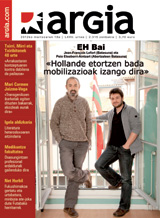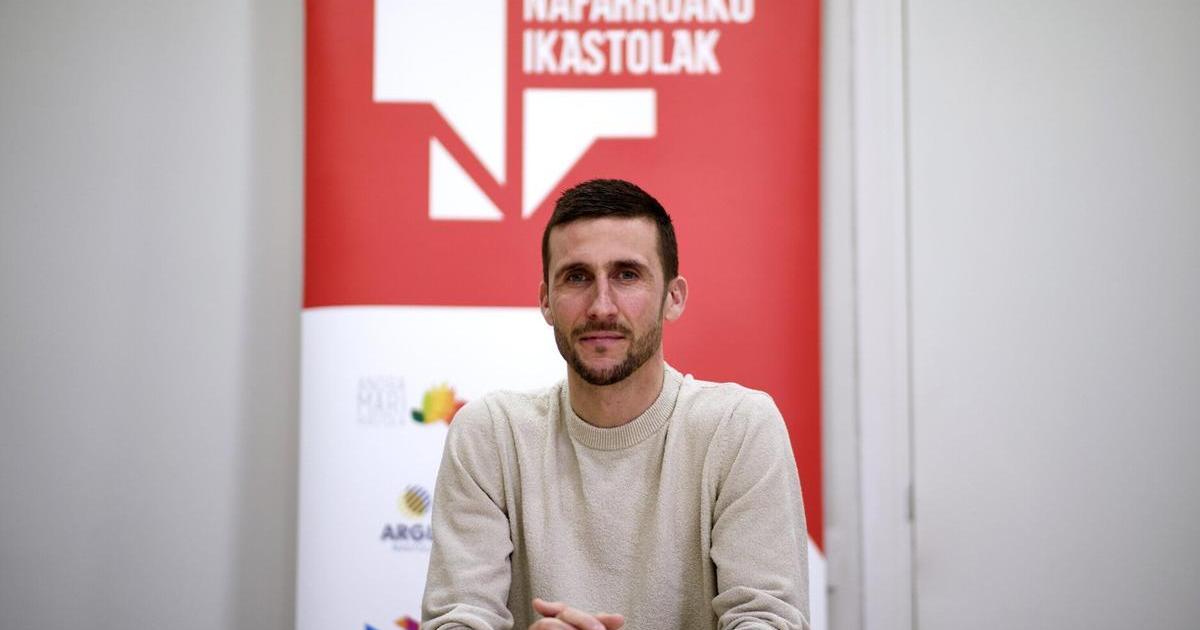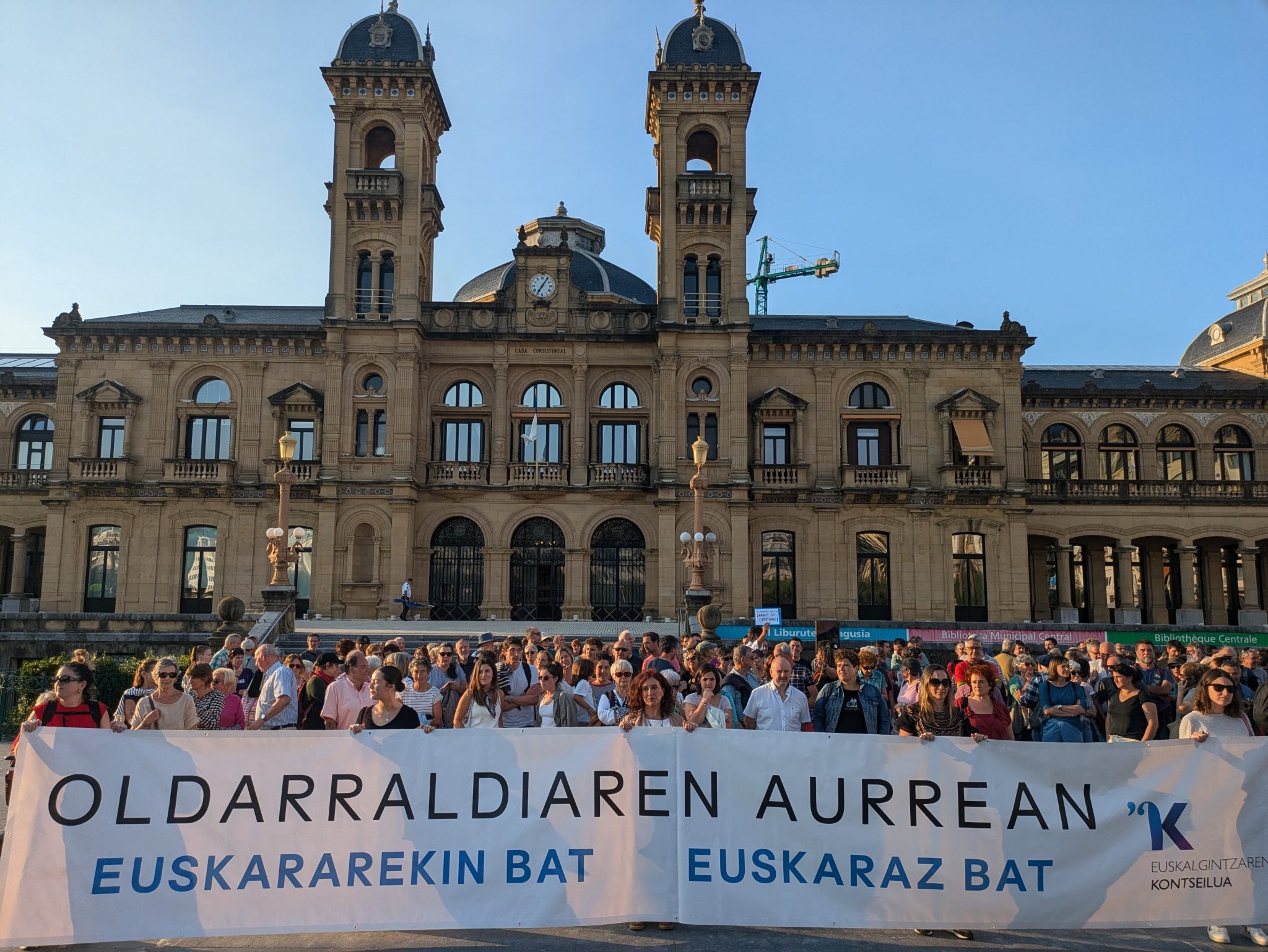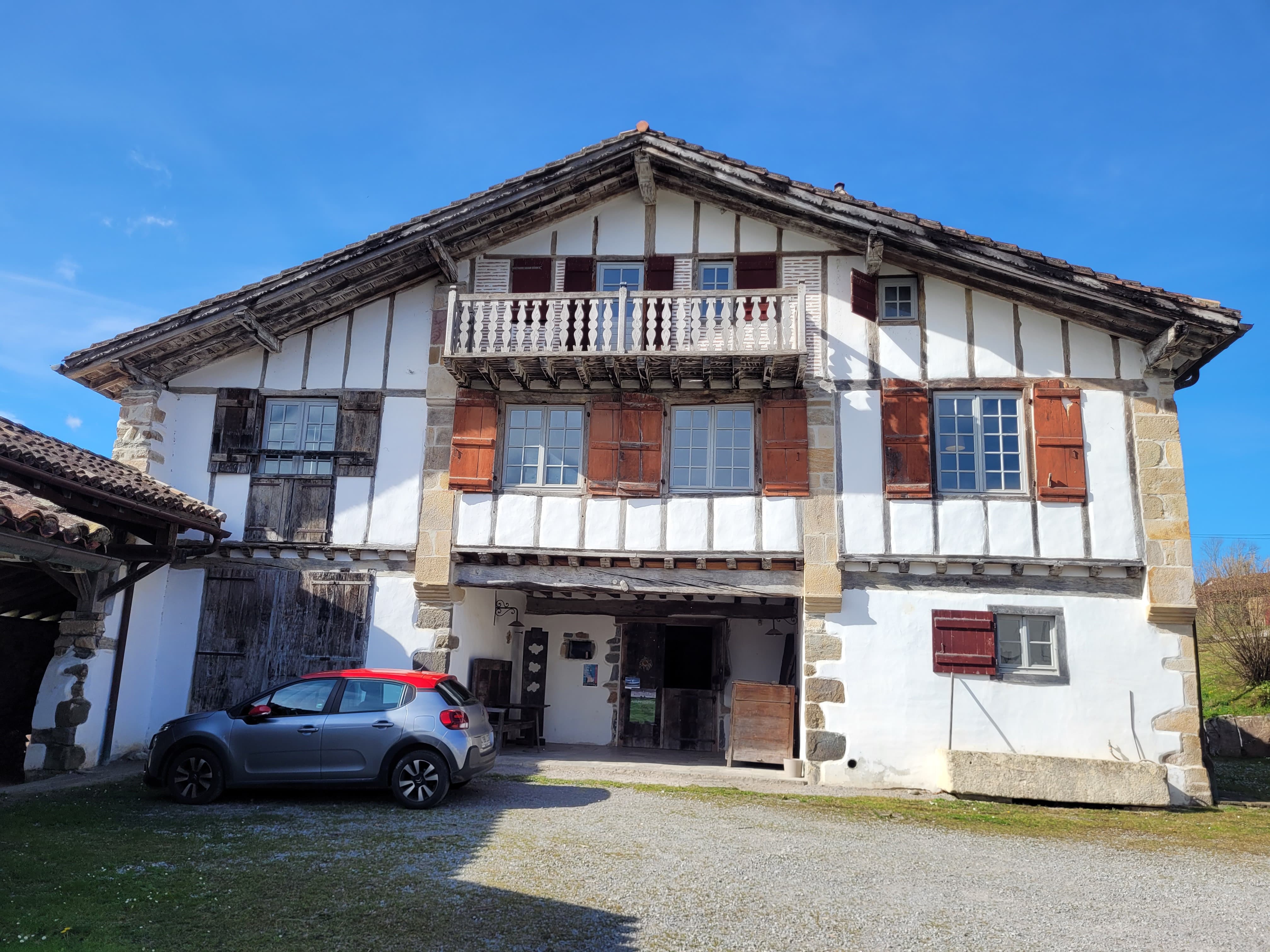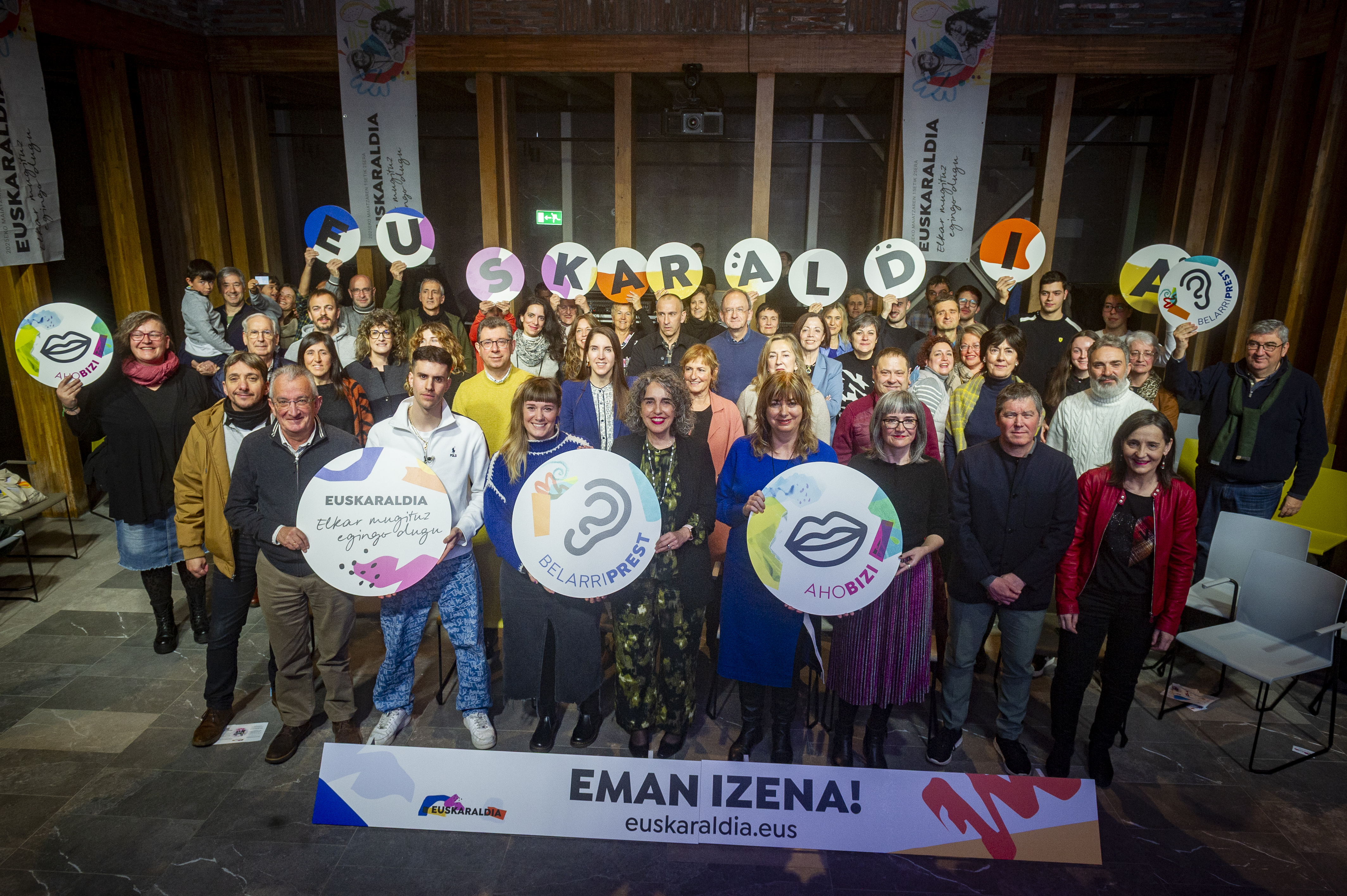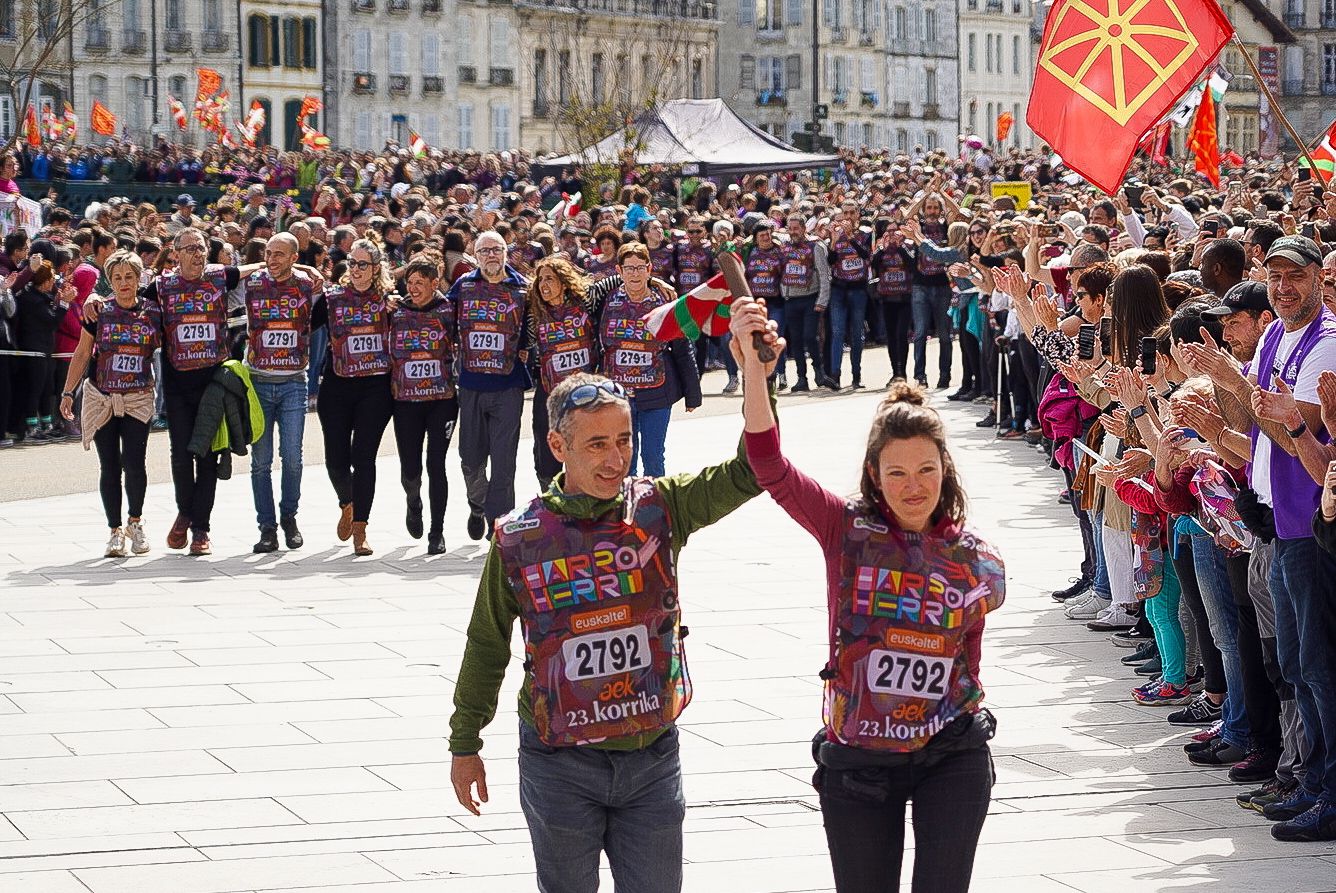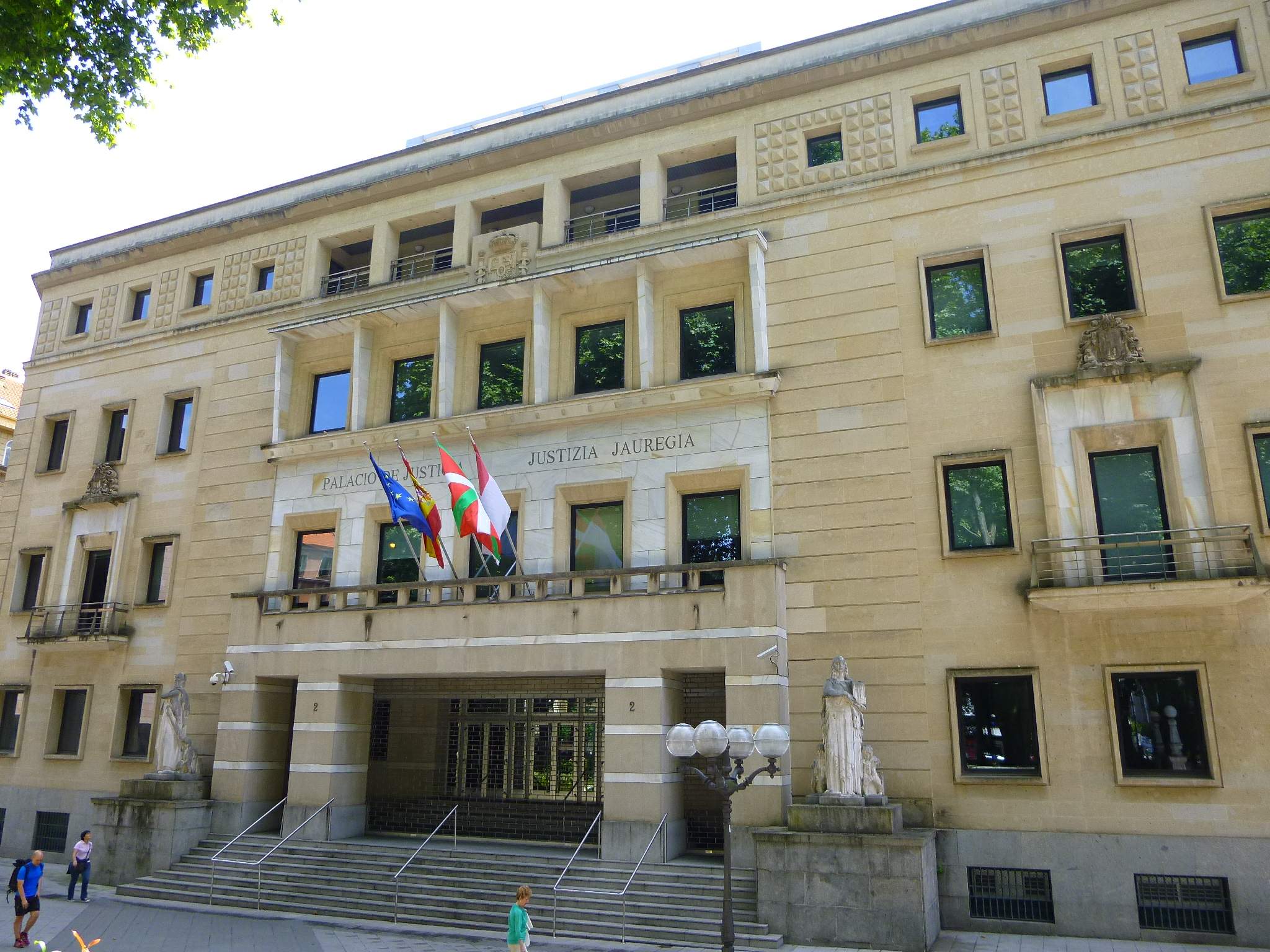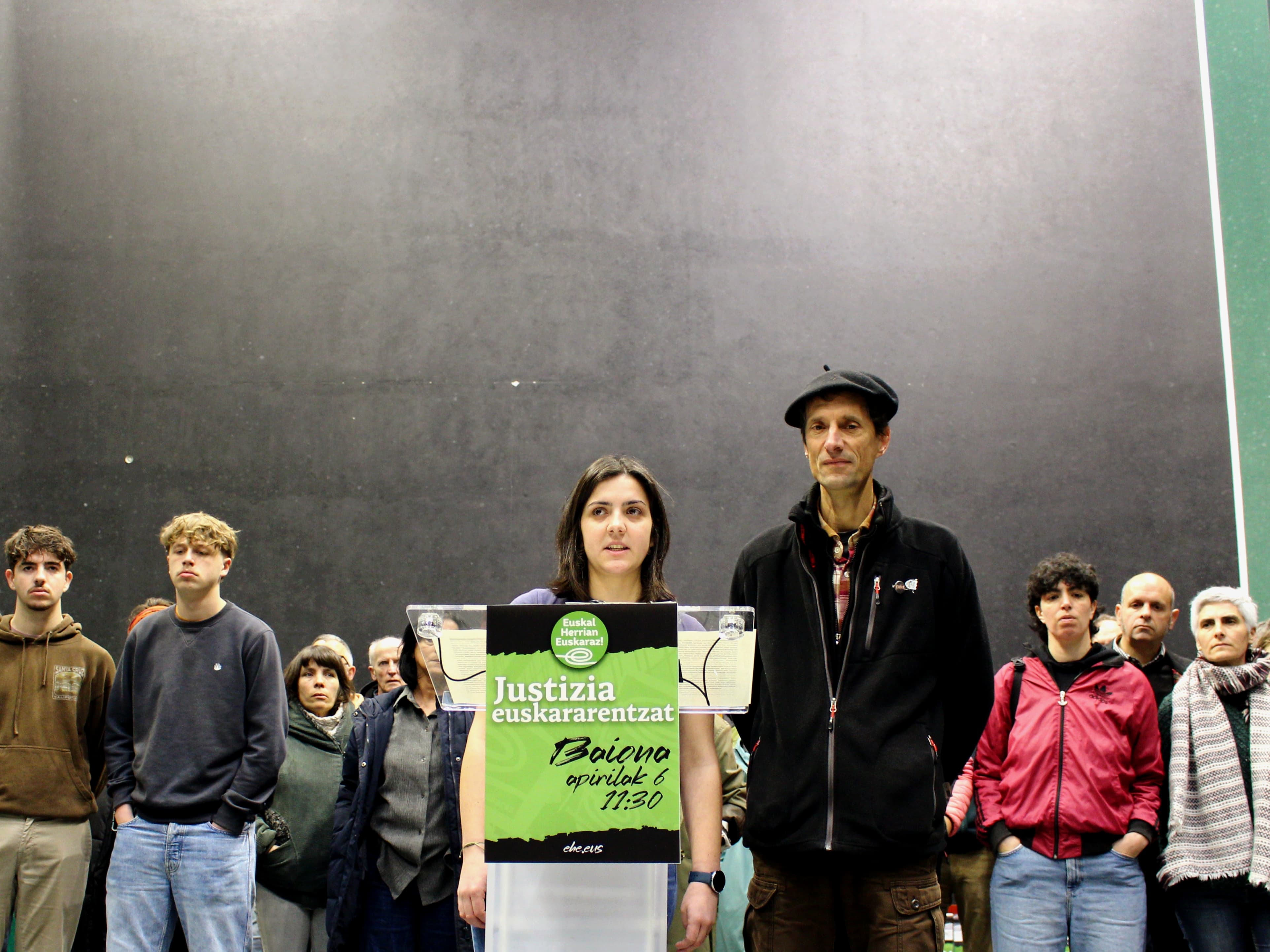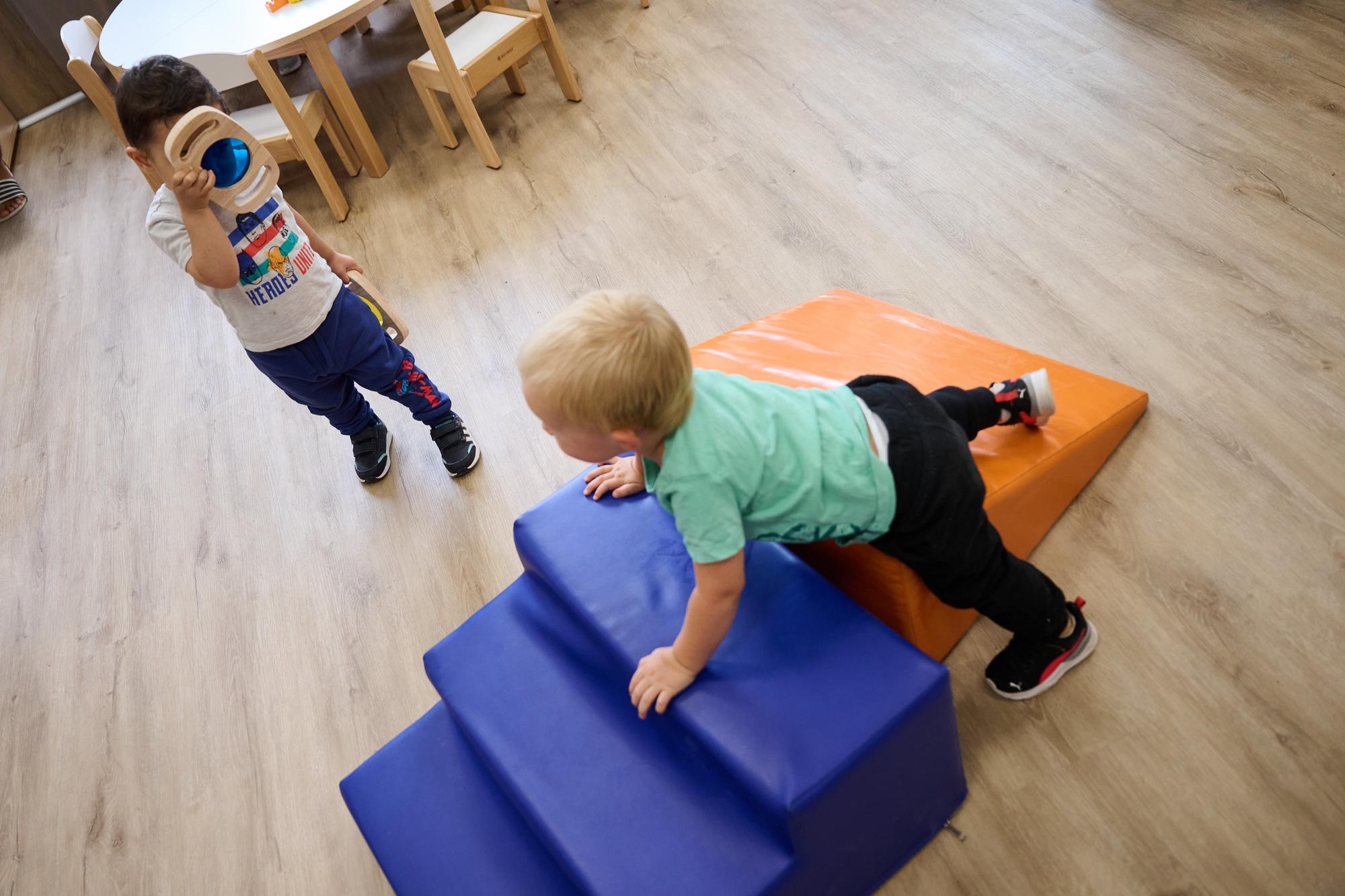Basque 33% Spanish 67%
- Students from the School of Medicine and Dentistry of the UPV/EHU held a two-day lockdown last year. Medicine is Euskalduniza! Nearly a hundred members of the movement managed to attract the attention of the media. Their claim is that they can study in Basque. They have denounced that the Euskaldunization of the health system is in a critical situation.
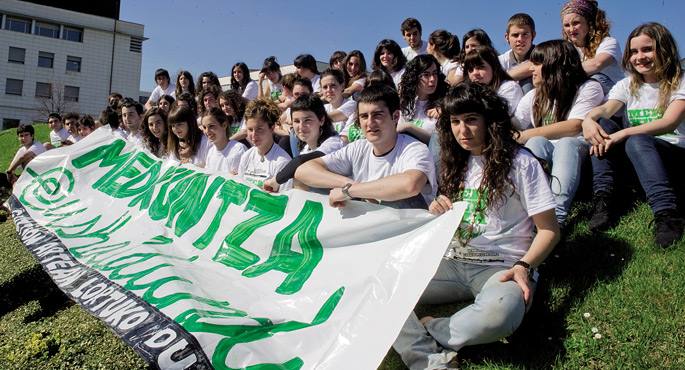
The Higher Health Studies in the Basque Country are as follows: Medicine, Dentistry, Nursing and Pharmacy. The University of the Basque Country/Euskal Herriko Unibertsitatea offers all degrees, but nursing is the only one that can be completed in Euskera. Adrián Aginagalde, member of the Council of Medical Students of the UPV/EHU, has explained the situation of the Basque Country in these studies.
Narrower access for euskaldunes
Medicine is a much-demanded learning, it needs a high grade to get into it. There is no room for everyone, and more and more students come from Spain to the UPV. Since the universities of Hego Euskal Herria and Spain constitute a unique district, any student has the option to enroll in Medicine from the UPV/EHU. All this is detrimental to those who want to register in Euskera, as there is more competition. Many students who are willing to study in Basque stay out every year, and visitors occupy the squares, learning in Spanish. All this has an impact on the decline in Basque enrolment. “The current political situation in Euskal Herria has attracted more students from other countries. It is the students from Spain who increase their enrolment in Spanish, and not the vasco-speakers who register in Spanish. We have proposed limiting career seats through language, but it is impossible before the law. Similar proposals have also been attempted in Catalonia,” says Aginagalde.
Enrolment in Euskera is falling significantly
Several university professors have studied the language of higher health (see data on the attached page), the trend of enrolment per language. In the Medicine section, Angel Bidaurrazaga, professor at the UPV/EHU, has shown us the registration data from 1994-1995 to the course 2011-2012. Year after year, and gradually, the percentages of enrollment in Basque and Spanish were equal. For example, in the 2005-2006 academic year 46% (100 students) and 54% (119 students) enrolled in Basque. From there, however, enrollment in Basque has decreased considerably; the sociologically normal trend is slowed down. This year's data is 33% of Basque and 67% in Spanish. This year enrollment in Basque has increased slightly, although percentages remain. In the past two groups were approved in Spanish and one in Basque. This year, three will be in Spanish and two in Basque.
On the other hand, the study reveals that between 1999 and 2009 there has been a significant increase in the number of students of childhood education and selectivity in Euskera. However, this trend of enrollment is not maintained in any other type of health studies, in Dentistry and in Pharmacy. The ups and downs have been very scarce, except for those of Nursing, which have remained unrewarded. On the contrary, in all experimental sciences, enrollment in Basque has greatly increased; in Biology or in Chemical Engineering, for example.
Euskaldunes in Spanish
Medical studies have six courses divided into two cycles. The first cycle consists of three courses and the classes are taught in Leioa. Currently all subjects of this cycle are taught in Basque. The second cycle studies are carried out in four hospitals: Donostia-San Sebastián, Basurto, Cruces and Txagorritxu. In this cycle are the problems to continue learning in Basque. The number of credits that can be obtained in the above-mentioned places in Basque is as follows: Donostia-San Sebastián 55%, Basurto 40%, Cruces 20% and Txagorritxu none. Aginagalde told us that the Euskaldunization of the four centers is very difficult, and that behind that there is a great lack of Euskaldun teachers. “It is very difficult to find Basque professionals in some specialties. That is the main problem. For example, in Gipuzkoa there is a case of a Basque physician, that of Paco Etxeberria, for example. But in Bizkaia no.” There are also Euskaldunes who register in Spanish. In fact, seeing that from the fourth level they have to study in Spanish, they think it will be easier to speak in Spanish from the beginning.
The need for Euskaldunes teachers
Several initiatives are organized in the council of medical students to change the situation, they work from within the university. The most common thing is to make requests for the subjects to be translated into Basque and things are gradually being achieved. Every effort is being made for each subject to have an Euskaldun professor. Aginagalde tells us that they see the need for a plan to attract Basque professionals working in hospitals to education. They think it's very important to bring new teachers to college. “After night surveillance at the hospital, we have teachers who come directly to teach. Such situations should be avoided.” They have made a number of requests: Translating the MIR exam, restricting access to university through language, maintaining places in Basque for teachers, etc.
Several campaigns have been carried out for new students to register in Euskera, with the aim of registering Euskaldunes students in Euskera. The Open Doors Days explain the benefits of enrolling in Euskera and explain with optimism the situation of Euskera.
Diagnosis of liability
Some students and professors are clear that the Euskaldunization of the health system is in question. They see three clear conclusions: healthcare professionals will not be Basque speakers, Basque healthcare clients will not be able to speak Basque with professionals and the Basque, both technical and normal, will not be able to develop normally.
Nafarroako Ikastolen Elkarteak lehendakari berria du. Oier Sanjurjok hartu dio lekukoa Elena Zabaleta Andresenari. Beste zazpi kide izanen ditu alboan Sanjurjok.
ELA sindikatuak azaldu duenez, azken Lan Eskaintza Publikoaren oinarrien arabera, Ertzaintzarako eskainitako lanpostuen %20ak eta Udaltzaingoaren %30ak ez daukate euskara-eskakizunik. Gasteizen, adibidez, udaltzain-lanpostuen erdietan, 24tan, ez dago euskara-eskakizunik.
Euskalgintzak Senpereko Larraldea etxea faltan botako du. Uda gabe, Bertsularien lagunak, bertan gelditzen den azken elkarteak, lekuz aldatuko du eta etxea hetsiko dute. Euskararen, euskal kulturaren eta arteen ohantzea izan da Larraldea, urte luzetan Andoni Iturrioz mezenasak... [+]
Badakizuenok badakizue, beste gauza asko bezala, euskararen aldeko borrokan ere politikoek, eragile batzuek eta hedabideek beraien antzezlana saldu nahi digutela, benetakoa balitz bezala.
Lehen urtean pozik jaso nuen, "Euskaraldi" hau. Zer edo zer zen, ezer ez zegoela... [+]
Euskarak, mendez mende, zapalkuntza sistematikoa jasan du, eta oraindik ere borrokan dabil egunerokoan bere leku duina aldarrikatzeko. Hizkuntza baten desagerpena ez da inoiz berez gertatzen; planifikazio politiko eta sozialak eragiten du zuzenean. Euskaldunoi ukatu egin izan... [+]
Oldarraldia ari du EAEko administrazioa euskalduntzeko erabakien aurka, berriz ere, enegarren aldiz. Oraingoan berrikuntza eta guzti, espainiar epaitegiak eta alderdi eta sindikatu antieuskaldunak elkarlanean ari baitira. Ez dira izan akats tekniko-juridikoak zuzentzeko asmoz... [+]
Horra Libération egunkariak berriki argitaratu duen idazkia:
“Bayonne” bukatu da, Libérationek “Baiona” idatziko du
Hiri baten izenaren erabilpena ohiturazkoa delarik, egunkari batean izen horren erabilpena aldatzea zaila da. Alta, irakurleen... [+]
Gasteizen egin duten ekitaldian ireki dute izen ematea, laugarren edizioa hasteko bi hilabete falta direla. Erakundeetako ordezkariak, herritarrak eta entitateetako kideak agertu dira, besteak beste. Euskaraldiaren koordinazioa Euskal Herriko erakunde publikoen eta Taupa... [+]
Korrikaren "bihotza eta burua" erakutsiko ditu dokumentalak. Proiektua gauzatzeko, herritarren babesa "ezinbestekoa" izango dela adierazi dute AEK eta Mirokutana ekoiztetxeak, eta apirilaren 25era bitartean crowdfunding kanpaina bat abiatuko dute jalgihadi.eus... [+]
Azken asteetan zenbait unibertsitatetako ate irekien jardunaldietara joateko aukera izan dut. Semea aztertzen ari da zer ikasiko duen datozen urteotan eta, erabakia hartu aurretik, komeni da aukera guztiak begiratzea. Unibertsitate bakoitzak badu bere misioa, bere izaera, bere... [+]
Ez dira gutxi azken boladan euskara bere onenean ez dagoela eta bere transmisioa bermatuta ez dagoela ohartarazten ari diren ahotsak. Bestetik, inork ez du ukatzen hezkuntzak ezinbesteko betebeharra duenik euskara eta euskal kulturaren biziraupenerako. Erronka estrategikoa... [+]
Ba al dakizue frantses batzuk harritu egiten direla mugaren alde honetan ere euskaldunak bagaudela jakitean? Ba bai, harrigarria bada ere, behin, Donostian, frantses batzuei entzun nien sinetsi ezinik beren buruari galdetzen: “Saint-Sébastien est au Pays... [+]
Gasteizko 1 zenbakiko Auzitegi Kontentzioso-Administratiboak emandako epaia berretsi du EAEko Justizia Auzitegi Nagusiak. Lan poltsan parte hartzeko euskara maila altuenaren baliokide diren 3. eta 4. eskakizunak indargabetu zituen Gasteizko Auzitegiak.
25 bat eragilek adierazi diete elkartasuna apirilaren 11n Baionako auzitegian epaituko dituzten Intza Gurrutxaga eta Gorka Torre Euskal Herrian Euskaraz taldeko kideei. Egun batzuk lehenago, apirilaren 6an Baionan eginen den manifestazioan parte hartzeko deia ere luzatu dute.
Iruñeko haur eskoletako zuzendariek, EH Bildu, Geroa Bai, Zurekin Nafarroa eta PSNren arteko akordioa kritikatu dute. “Murgiltze ereduaren alde egin dugu beti, baina inoiz ez da gure iritzia kontutan hartzen” salatu du Euskalerria Irratian, Garikoitz Torregrosa... [+]









